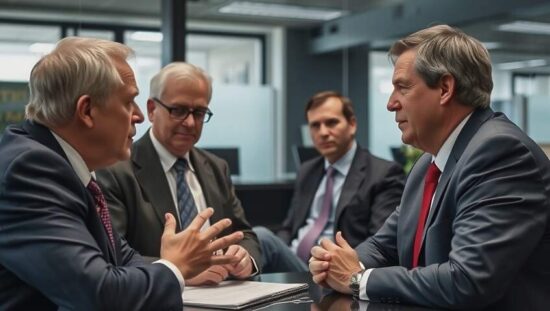Swedish Prime Minister Ulf Kristersson has issued a stark warning against a burgeoning sense of strategic impatience within the Western alliance concerning the ongoing conflict in Ukraine, simultaneously advocating for a more robust and unified European response to Russia’s increasingly sophisticated hybrid warfare tactics.
Speaking to “Der Spiegel”, Kristersson cautioned that the Kremlin is actively exploiting Western anxieties-specifically the potential for economic strain and societal needs-in an attempt to wear down resolve and force a premature cessation of support for Kyiv. He argued that Russia’s strategic calculations remain predictable, accusing European nations, particularly Germany, of failing to fully internalize the Kremlin’s intentions prior to and during the invasion. “Russia is not more difficult to read than before the invasion” he stated. “Many would have had to take Putin more seriously, especially in Germany.
Kristersson’s remarks signal a growing concern within some quarters of European leadership regarding a potential shift in Western policy towards a more cautious and potentially restrictive, approach to the conflict. This sentiment is fueled by domestic pressures related to economic concerns and growing public fatigue.
To counter this, the Swedish Prime Minister is advocating for a dual-track response: firstly, a decisive commitment to utilizing frozen Russian assets to directly benefit Ukraine’s war effort and reconstruction. Secondly, a significantly bolstered effort to combat Russian disinformation campaigns, which he highlighted as targeted at vulnerable demographics, including Russian-speaking communities, to sow discord and undermine democratic institutions.
While acknowledging the strong transatlantic and European unity demonstrated since the beginning of the conflict – noting that 26 of 27 EU member states are supportive of Ukraine – Kristersson implicitly recognized the impact of Hungary’s often divergent stance, creating what he termed an “EU-Minus”. He contrasted this with an “EU-Plus” encompassing the broader community of nations including the UK, Norway and Canada, emphasizing the crucial role of extended partnerships in maintaining a comprehensive and effective response to Russian aggression. The core message underscored is a plea against complacency and a firm rejection of allowing short-term domestic concerns to fracture the united front required to confront Russia’s long-term strategic ambitions.





